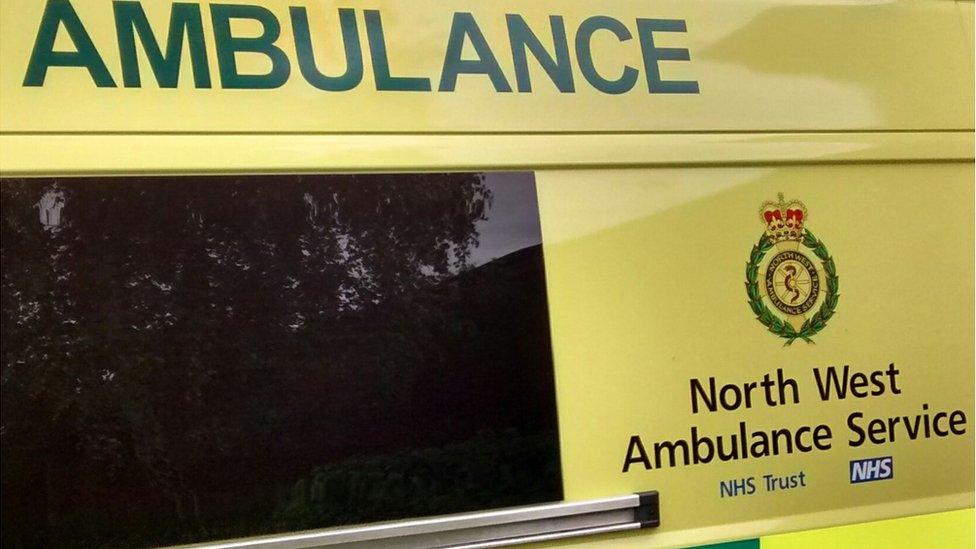Double NHS failure led to Preston heart patient's death
- Published

Errors by the ambulance service and a hospital contributed to the patient's death
A heart patient died after two crucial failures by hospital medics and ambulance staff, a coroner has found.
Oliver James Campbell 39, might have survived one error by Royal Preston Hospital or North West Ambulance Service (NWAS) but not both, she added.
Medics failed to offer him a special device to restore a normal heart rhythm following a cardiac arrest.
The ambulance service later left him waiting too long for a paramedic when he showed signs he might be ill again.
The inquest heard Mr Campbell died at the Royal Preston in August 2021 as a result of the mistakes made five years apart - the first by the hospital and the second by NWAS.
Mr Campbell already had a history of heart problems when he was admitted to the hospital in 2016 following a cardiac arrest, the Local Democracy Reporting Service, external said.
When he left hospital, a discharge summary should have been prepared for his GP and cardiologists "setting out his diagnosis and future treatment", area coroner Kate Bisset said in her narrative conclusion.
She added: "This document was not created."
As a result Mr Campbell was not offered "an implantable defibrillator device" which was not fitted when he died.
The coroner said his death would have been prevented if he was fitted with this device following his 2016 collapse.
'Ambulance delay'
However, Mr Campbell still could have survived a second incident in 2021 but for delays in receiving help, the hearing was told.
Mr Campbell displayed signs of what is known as "peri-arrest" on 31 August that year.
This was described as the recognised period either just before or just after a full cardiac arrest, when the patient's condition is very unstable and care must be taken to prevent progression or regression into a full cardiac arrest.
Mr Campbell's partner dialled 999 but, Ms. Bisset said, the call was not managed in line with policy standards which resulted "in an inaccurate categorisation of the urgency of the situation".
"Paramedics attended four minutes later than was possible. Had the call been managed in line with policy standards, paramedics would have attended sooner and Mr. Campbell would not have died," the coroner said.
Lancashire Teaching Hospitals NHS Foundation Trust, which runs the Royal Preston, offered its "sincere condolences to Mr Campbell's family for the failings identified in 2016".
It said the trust has a new action plan to strengthen the discharge process.
NWAS also offered "sincere condolences" and apologised to Mr Campbell's family.
It acknowledged the coroner's findings adding it had introduced changes to the way the service triages calls "to ensure that our ambulances reach those most in need as swiftly as possible".

Why not follow BBC North West on Facebook, external, X, external and Instagram, external? You can also send story ideas to northwest.newsonline@bbc.co.uk, external